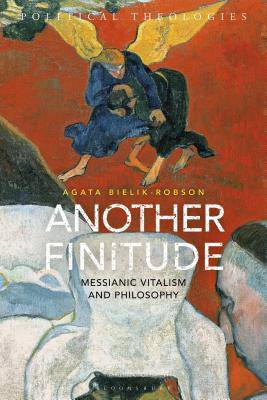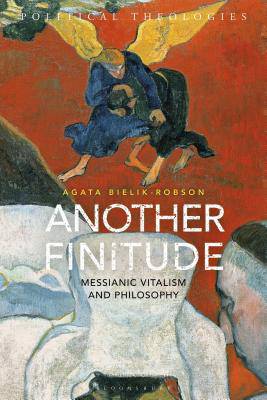
- Retrait gratuit dans votre magasin Club
- 7.000.000 titres dans notre catalogue
- Payer en toute sécurité
- Toujours un magasin près de chez vous
- Retrait gratuit dans votre magasin Club
- 7.000.0000 titres dans notre catalogue
- Payer en toute sécurité
- Toujours un magasin près de chez vous
Description
Beginning from the notion of finite life, Another Finitude takes this staple subject from post-Heideggerian philosophy and opposes it to the onto-theological concept of infinity, represented by an eternal absolute. Although critical of Heidegger and his definition of finitude as 'being-towards-death', this book does not revert to the ontological idea of infinity secured in the sacred image of immortality. But it also does not want to give up on infinity altogether; the infinite is transposed, so it can become a necessary moment of the finite life.
A theological framework for the new elaboration of the concept of finitude is crucial; but instead of following the Lutheran formula, Agata Bielik-Robson turns to the sources of Judaism. Taking inspiration from the Jewish idea of torat hayim, the principle of finite life, which found the best expression in the biblical sentence: love strong as death; love emerges as the alternative marker of finitude, allowing to us redefine it in an affirmative way. By tracing the avatars of love in the group of 20th-century thinkers, or 'messianic vitalists'-Benjamin, Rosenzweig, Arendt, Derrida, and (deeply revised) Freud-the book attempts to demonstrate the possibility of such affirmation. Love becomes the new 'infinite-in-the-finite'; love in all its forms, from the original libidinal endowment of the human psyche to the last metamorphoses of agape, the Greco-Christian divine love.
A theological framework for the new elaboration of the concept of finitude is crucial; but instead of following the Lutheran formula, Agata Bielik-Robson turns to the sources of Judaism. Taking inspiration from the Jewish idea of torat hayim, the principle of finite life, which found the best expression in the biblical sentence: love strong as death; love emerges as the alternative marker of finitude, allowing to us redefine it in an affirmative way. By tracing the avatars of love in the group of 20th-century thinkers, or 'messianic vitalists'-Benjamin, Rosenzweig, Arendt, Derrida, and (deeply revised) Freud-the book attempts to demonstrate the possibility of such affirmation. Love becomes the new 'infinite-in-the-finite'; love in all its forms, from the original libidinal endowment of the human psyche to the last metamorphoses of agape, the Greco-Christian divine love.
Spécifications
Parties prenantes
- Auteur(s) :
- Editeur:
Contenu
- Nombre de pages :
- 312
- Langue:
- Anglais
- Collection :
Caractéristiques
- EAN:
- 9781350094079
- Date de parution :
- 30-05-19
- Format:
- Livre relié
- Format numérique:
- Genaaid
- Dimensions :
- 157 mm x 236 mm
- Poids :
- 589 g

Les avis
Nous publions uniquement les avis qui respectent les conditions requises. Consultez nos conditions pour les avis.






